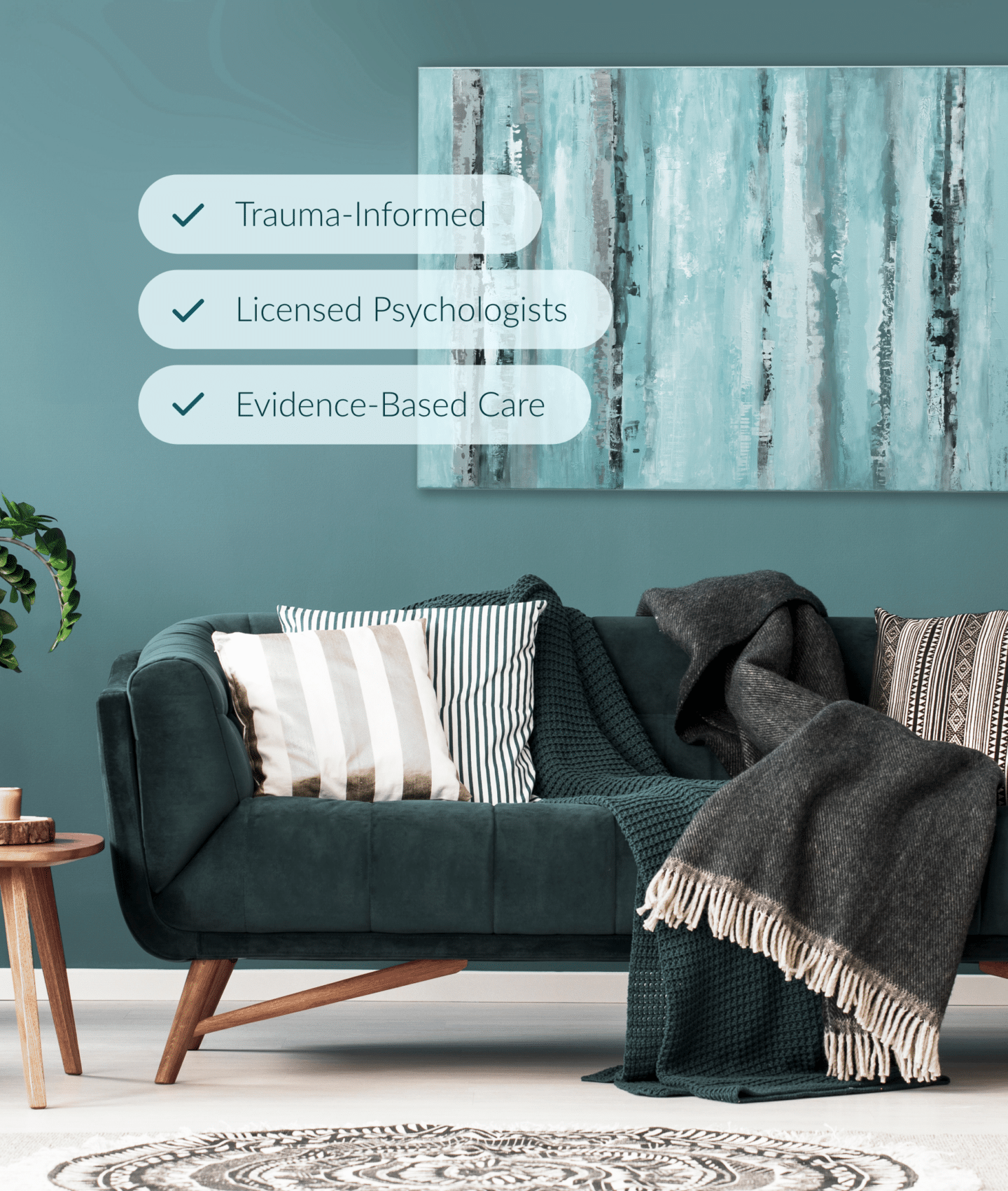by Vanessa H. Roddenberry, Ph.D., HSP-P
Choosing the Right Therapist for You
Finding the right therapist is one of the most important steps toward improving your mental health and well-being. The relationship you build with your therapist can greatly impact how effective therapy is. But with so many options, the search for a therapist can feel overwhelming. You may find that despite endless Google searches for terms like “psychologist near me” or “mental health therapist,” you’re still confused about where to start.
In this blog, we’ll guide you through the process of finding the best therapist and will provide practical tips for finding a therapist who fits your needs.
Why the Right Therapist Match Matters
Therapy is more than just talking—it’s about forming a relationship where you feel seen, heard, and supported. A good therapist creates a space where you can explore your thoughts and emotions without judgment. But beyond comfort, they need the right training and experience to help you manage complex emotions, life transitions, and mental health challenges.
Many people assume all therapists are the same, but they can vary widely in education, training, and approach. While all therapists aim to help, finding someone with the right expertise can make therapy much more effective—especially for issues like trauma, anxiety, or relationship struggles.
Step 1: Know What You’re Looking For In A Therapist
Before you start your search, take a moment to think about what you want from therapy. Consider these questions:
- What challenges or issues do I want to address?
- Am I looking for short-term support or a longer-term relationship?
- Do I prefer a certain approach, like Cognitive Behavioral Therapy (CBT) or trauma-focused therapy?
- What type of personality would I feel most comfortable with?
Being clear about your needs will help guide your search. For example, if you’ve experienced trauma, look for a therapist who specializes in trauma-informed care. If you’re struggling with anxiety, someone trained in CBT might be a good fit.
Step 2: Check Credentials and Expertise
One of the most important factors when choosing a therapist is their training and expertise. Doctoral-level psychologists, like those at Breyta, offer a deep level of knowledge and experience. They are trained not only in clinical practice but also in research, assessment, and teaching, which allows them to provide comprehensive care.
When researching potential therapists, consider the following:
- Credentials: Look for licensed therapists with advanced degrees like PhDs or PsyDs. Doctoral-level psychologists bring more specialized training to the table.
- Specialties: Does the therapist have experience with the issues you’re facing? For example, if you’re dealing with relationship issues, look for someone who specializes in couples therapy.
- Reviews: While it’s helpful to read reviews, keep in mind that mental health professionals are bound by ethical guidelines and can’t request reviews from clients. A lack of reviews doesn’t necessarily reflect a therapist’s abilities.
Step 3: Focus on Fit
While credentials and expertise are important, finding a therapist who feels like the right fit for you is key. The therapeutic relationship is built on trust, so it’s vital that you feel comfortable being open and vulnerable. To assess fit, you can:
- Schedule a consultation: Many therapists offer a free consultation. Use this time to ask about their approach and how they would work with you on your specific challenges.
- Assess communication style: Do you feel heard and understood? Pay attention to how the therapist responds during the initial meeting.
- Consider their personality: Some people prefer a direct approach, while others want someone more nurturing. Think about what would work best for you.
At Breyta, we take time to match you with a therapist who understands your unique needs, ensuring a supportive experience from the first session.
Step 4: Understand Their Approach
Different therapists use different therapeutic methods, and it’s important to find one that suits you. Here are some common evidence-based approaches to consider:
- Cognitive Behavioral Therapy (CBT): Focuses on identifying and changing negative thought patterns.
- Dialectical Behavior Therapy (DBT): A form of CBT that helps people manage intense emotions and improve relationships.
- Acceptance and Commitment Therapy (ACT): Helps you accept difficult emotions and commit to making changes that align with your values.
A doctoral-level psychologist will be trained in a variety of evidence-based approaches and can tailor their style to what works best for you.
Step 5: Think Long-Term
Some people seek therapy for short-term support, while others may need longer-term help. Consider what kind of relationship you’re looking for. Whether you’re navigating a life transition or exploring deeper issues, the type of therapy relationship you want will guide your search.
Why Breyta Stands Out
At Breyta Psychological Services, we pride ourselves on offering highly trained, doctoral-level psychologists who bring a unique depth of knowledge and care to therapy. Our mental health providers are experts in research, assessment, and clinical practice. We dig deep to help you uncover the root causes of your challenges and provide personalized care backed by years of experience.
If you’re ready to start your therapy journey or want to learn more about our services, contact Breyta Psychological Services today. We can help you get started with a free 15-minute consultation or a first appointment. In-person or telehealth appointment options are available. We’re committed to helping you find the best therapist match, so you can take the next step toward well-being with confidence.





